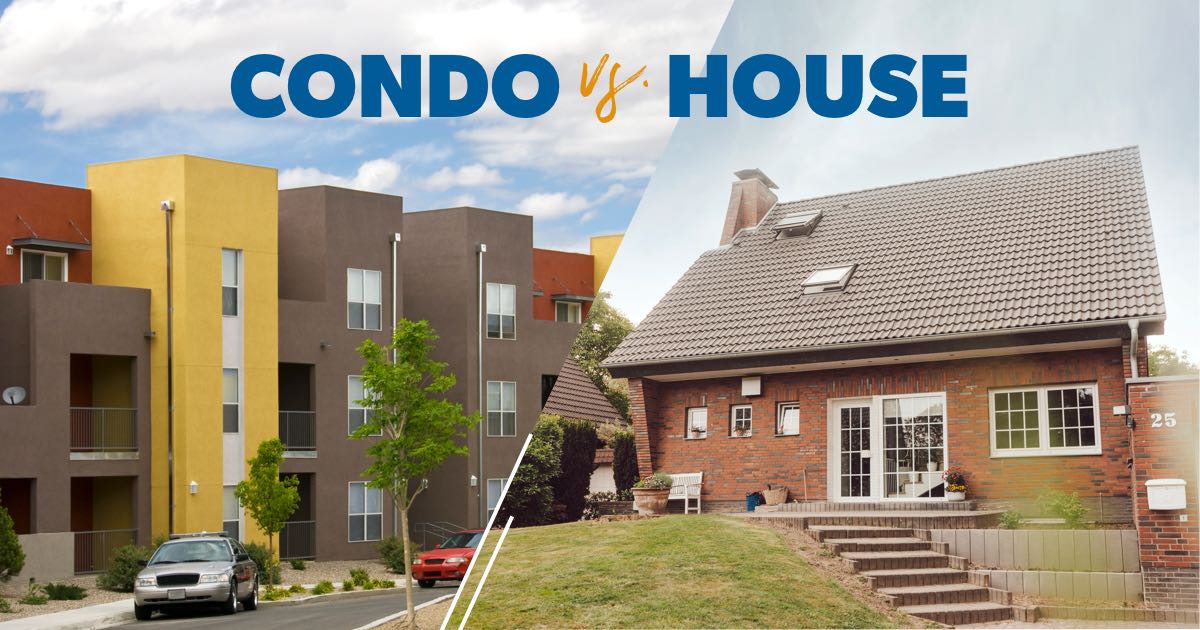The decision to buy a condo or a house in Canada depends on your budget, lifestyle preferences, and long-term goals. Both options come with unique advantages and challenges, making it essential to weigh the pros and cons before committing. This paper provides a detailed comparison of costs, responsibilities, and lifestyle considerations to help you determine which option is the best fit for your needs.

Costs
Condo Costs
Condos are typically more affordable than houses, especially in major urban centers like Toronto or Vancouver, where real estate prices are high. Buyers benefit from lower upfront costs, making condos an attractive option for first-time homebuyers or those with a limited budget.
However, condo ownership comes with monthly maintenance fees, which cover building upkeep, amenities, and shared utilities. These fees can vary significantly depending on the size of the condo and the amenities offered, such as pools, gyms, or concierge services. Over time, these fees can add up and should be factored into your budget.
House Costs
Houses generally require a higher initial investment, particularly for detached or semi-detached properties. In addition to the purchase price, homeowners are responsible for property taxes, utility bills, and ongoing maintenance costs, such as landscaping and repairs.
While houses tend to be more expensive upfront, they typically offer greater potential for appreciation in value over time. Homeowners also have more control over maintenance and renovation costs, allowing them to prioritize expenses as needed.
Responsibilities
Condo Responsibilities
Condo living is relatively low-maintenance compared to owning a house. The condo board or management company handles common area maintenance, snow removal, landscaping, and building repairs. This allows condo owners to enjoy a more hands-off approach to property upkeep.
However, condo owners must adhere to rules and regulations set by the condo board. These can include restrictions on renovations, noise levels, and even pet ownership. While these rules help maintain property value and community harmony, they may feel restrictive to some buyers.
House Responsibilities
Owning a house comes with greater responsibility for maintenance and repairs. Homeowners must handle tasks such as lawn care, snow shoveling, roof repairs, and plumbing issues. While this requires more effort and time, it also gives homeowners complete control over their property.
Unlike condos, houses come with no restrictions from a condo board, allowing owners the freedom to renovate, decorate, and use their property as they see fit.

Lifestyle Considerations
Condo Lifestyle
Condos are ideal for individuals or couples who prioritize convenience, urban living, and access to amenities. Many condos are located in city centers, offering proximity to work, entertainment, and public transportation. The availability of shared amenities, such as fitness centers and community rooms, can enhance the overall living experience.
Condo living also fosters a sense of community, as residents share common spaces and interact with neighbors regularly. However, the smaller living space in condos may not be suitable for families or those seeking more privacy.
House Lifestyle
Houses are better suited for families or individuals who value space, privacy, and outdoor living. With a house, you have the freedom to create a personal oasis, including gardens, patios, and play areas for children or pets.
Houses are typically located in suburban or rural areas, offering a quieter environment and access to larger properties. However, this often comes with longer commutes and less immediate access to urban amenities.
Flexibility and Investment Potential
Condos
Condos are often easier to rent out or sell due to their lower price point and location in high-demand urban areas. They are a good choice for investors looking for rental income or for buyers planning to downsize in the future.
However, the value of a condo is heavily influenced by market conditions and the management of the building. Poorly managed buildings or rising maintenance fees can negatively affect resale value.
Houses
Houses generally offer better long-term appreciation and investment potential. The land on which a house is built often increases in value, making houses a more stable investment.
Homeowners also have the flexibility to modify or expand their property to increase its value. However, selling a house can take longer, especially in slower markets or for properties in less desirable locations.

Conclusion
The choice between buying a condo or a house in Canada ultimately depends on your lifestyle, financial situation, and future goals. Condos are ideal for those seeking affordability, convenience, and minimal maintenance, while houses offer more space, privacy, and long-term investment potential. By carefully evaluating the costs, responsibilities, and lifestyle considerations outlined in this comparison, you can make an informed decision that aligns with your needs and preferences.

